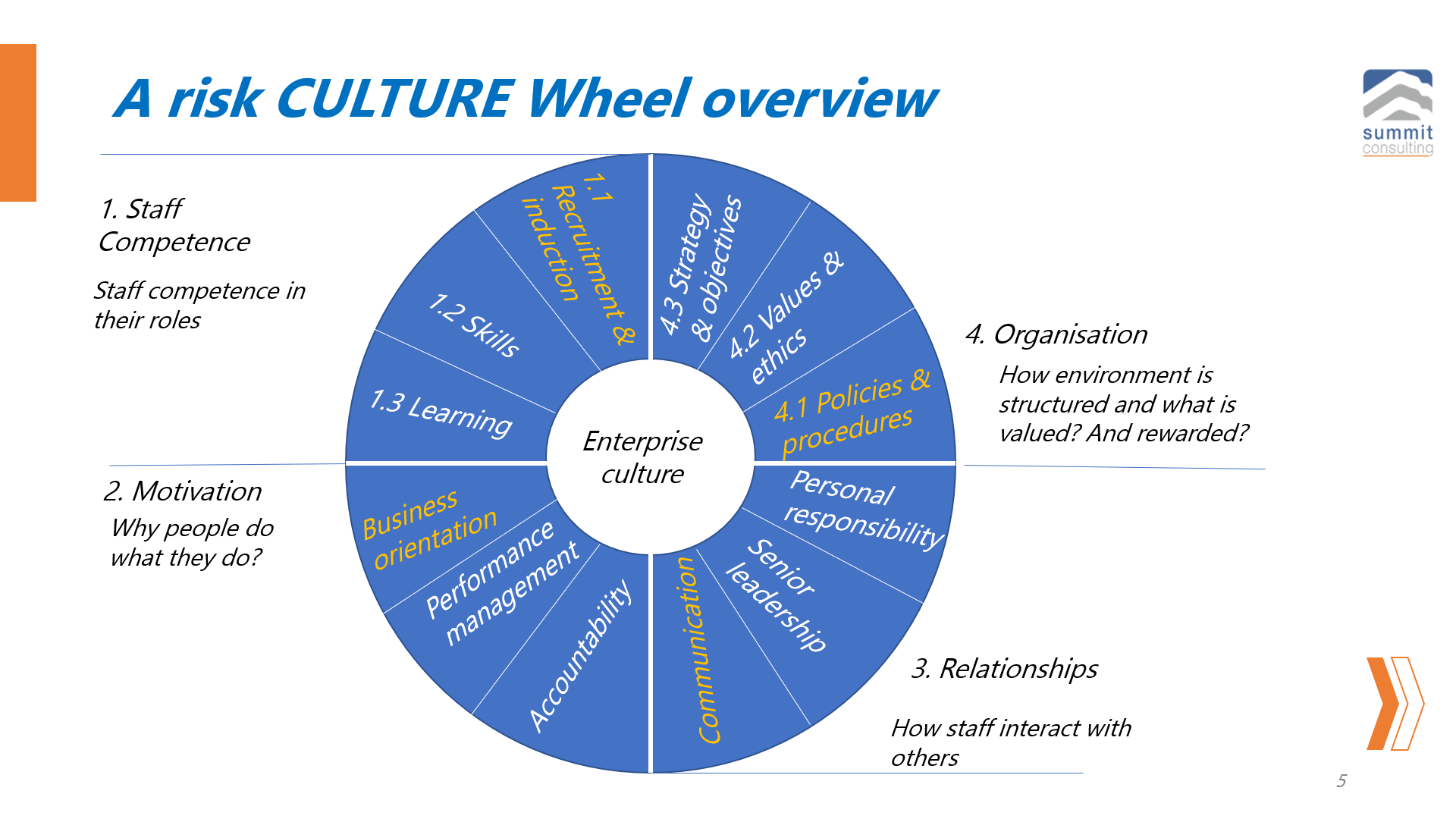A lot of work has been done in the field of organisational development and change management. One of the major causes of strategy risks is poor execution culture, where people play as individuals instead of a team.
Indeed, many companies invest in recruiting the best talent, but experience high staff turnover, due to stress, burnout, unrealistic targets, and a plethora of reasons that make the staff disengage. Like a soul or good heart to the human being, culture is the soul that makes the organisation run swiftly. It is the software of the organisation that creates synergy.
No change management initiative is complete without a focus on corporate culture.
Three great publications have simplified the subject of culture.
In 2015, the International Finance Corporation (IFC) published a great paper titled, Risk Culture, Risk Governance, and Balanced Incentives.” The paper offered recommendations for strengthening risk management. The Jan-Feb 2018 issue of Harvard Business Review (HBR) featured a great article, “The Leaders Guide to Corporate Culture.” It offered eight (8) critical elements of organisational culture. And last but not the least, Kim S. Cameron and Robert E. Quinn, published one of the top comprehensive books on corporate culture, Diagnosing and Changing Organisational Culture, based on the Competing Values Framework.
All these great works by top authors agree on one thing: without a high-performance culture, all organisations remain mediocre. Culture creates the right attitude and a winning mind focus to innovate and stay a step ahead of the competition.
The different authors categorize organisational culture disposition differently. A culture audit helps to determine the specific organisation’s culture type and whether it is toxic or not. Is your current culture that of blame i.e., the blame culture? Laidback culture or strategic focus culture?
Another paper defines culture types as collaborate, create, control, or compete. And the last one into caring, purpose, learning, enjoyment, results, authority, safety, or order. An organisation must select a specific tool to use to ascertain the predominant culture type and the desired culture.
Figure 1 below shows a culture wheel, with slight modifications, with four key areas that influence culture.

Figure 1: risk culture wheel
Source: IFC Risk Culture, Risk Governance and Balanced Incentives
To request a culture audit, contact us. For a presentation to your team about the culture when inbox or send an email requesting a free 15-minute talk at your next EXCO meet. The culture wheel guides you about culture influencers and how to deepen culture along with the key organisational processes and employee lifecycle.
Copyright Mustapha B Mugisa, Mr. Strategy 2021. All rights reserved.



